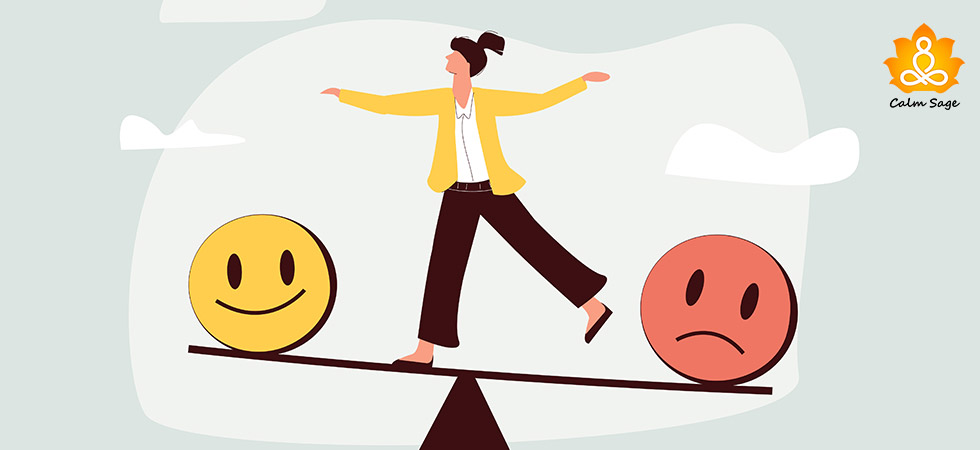Own Your Feelings: 9 Ways To Hold Emotional Accountability

Emotions can be contagious. After all, when your loved one feels happy, you feel happy with them and when they are angry, you might begin to believe that their anger is your responsibility as you bear it with them. However, in our support and empathy towards their feelings, we often forget that it’s NOT our responsibility to bear their feelings.
Let’s take an example; in the middle of a fight with your spouse, they (in their heightened emotional state) reply with, “You’re making me angry!” This hastily spoken statement under a heightened emotional state makes you feel either guilty or makes you self-blame.
This is what I’m talking about here. When you begin to blame yourself or feel guilty for emotions others feel, then it could be referred to as emotional projection, a state that can cause co-dependency in relationships.
Here’s the run-down: You’re not in charge of how others feel, just like they are not in charge of how you feel in return. That is what we’re exploring in this article, and how you can take emotional accountability for your feelings.
What Does “Owning Your Feelings” Mean?

Taking responsibility for your emotions involves shifting your mindset. If someone attempts to guilt-trip you for feeling intense emotions, it could be a case of “emotional projection”. This means that you’re projecting onto others aspects of yourself that you dislike, for example, anger, to avoid feeling negatively about yourself.
So instead of owning your emotions, you deflect and make others take the guilt and blame for how you feel. This can be a subtle sign of gaslighting and can even cause guilt trips and unrelated arguments.
When you shift your emotions and feelings onto others, you can not only harm others but yourself too. This emotional projection you engage in can cause unhealthy relationships, insecure attachments, resentment, and bullying in relationships.
When I say, “own your feelings”, I mean, taking charge of your emotions and instead of placing others with the guilt of your feelings, you embrace them as a part of you.
It’s OK to want to avoid feeling bad about yourself, and I get that this desire is one of the reasons why emotional projection can be seen as a defense mechanism. You might not even be aware that you’re doing so, but subconsciously seeking someone to blame for it all is a strong possibility.
Did you know that we most likely develop this defense mechanism in our teens? Let’s take a look at some ways you can hold emotional accountability and own your feelings.
How To Become Emotionally Responsible?
1. Understand That You Can’t Change Others
Everyone is entitled to their own beliefs and opinions just as you are. It’ll do you good to remember that you can’t change others just as others can’t change you. You have no control over the feelings, thoughts, and emotions of others, and trying to manipulate them will result in your pain. So, if you want to become emotionally responsible, focus less on changing others and more on managing your emotions.
2. Use “I” Statements
When you’re upset, it’s OK to tell your loved one what upset you. This needs to be done in a non-blaming way though. You need to use more “I” statements instead of “YOU” statements. Try to say, “I feel miserable when you hide something from me.” instead of, “You make me feel miserable.”
3. Speak Your Needs
No one’s a mind reader, so avoid expecting others to automatically understand your needs. The more you rely on others’ expectations, the more vulnerable you’ll be to disappointment. Instead, try to share your needs with others. For example, say, “I worry when you don’t reach home safely. Can you send me a text when you get home?”
4. Mind Your Actions
Words and actions can hurt equally, so mind your actions as you do your words. Instead of focusing on others, focus on yourself. Feeling upset with your partner is OK, but avoid using your emotions as an excuse to start an argument. While you can’t control their actions, you can control yours.
5. Question Your Thoughts
Again, actions are as important as words. If your loved one is hurting you with their actions (or lack thereof), then you might not be wrong. However, if you’re thinking negatively about their actions or your response, then think again, “Is it true what you’re feeling?” “Are you being fair to them?” Question your thoughts and think about the blame you’re unintentionally or intentionally putting on others. Is it justified?
6. Take Responsibility For Your Actions
Taking responsibility for your actions is a critical aspect of becoming emotionally responsible. Rather than making baseless excuses, acknowledge your mistakes, and offer an apology if needed. When you accept responsibility, you pave the way for taking accountability for your emotions, too.
7. Prioritize Self-Care
It’s a defense mechanism, this emotional projection, so when you find yourself using emotional projection, take a step back and take care of yourself. You might be overwhelmed, stressed, or lonely to use this defense mechanism. Prioritize self-care and make sure you meet your needs that are neglected.
8. Stay Away From Negative People
Most of the time, it’s the company that needs changing. If you’re looking to learn how to be emotionally responsible for your feelings, then learn to select positive company. Emotional projection is very common in people with personality disorders, as well as those who engage in emotional manipulation. If you see these traits around you, then consider breaking ties with them for your well-being.
9. Seek Help, If And When Needed
Another way to learn how to be emotionally responsible is to seek help when and if you need it. You don’t have to do this alone. Seeking help is an option, especially as you learn to take accountability for your feelings. A therapist can provide valuable advice, support, and guidance to help you change your beliefs, and become more at ease with your emotions.
You are not accountable for others’ feelings but are responsible for your own. It’s OK to have empathy and feel others’ emotions, but it’s not ok to project those feelings onto yourself. Others’ emotions and feelings aren’t your responsibility, as yours are not others’ responsibility.
I hope this article helped you understand how to take emotional accountability. For more, you can write to us at info@calmsage.com or DM us on social media. You can also share your thoughts with us in the comments below.
Take Care!




















